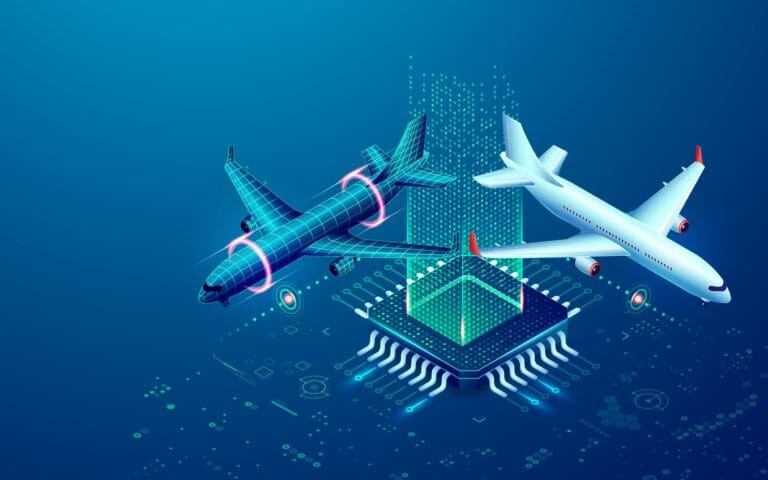As the air cargo sector grapples with the twin pressures of global supply chain volatility and rising regulatory complexity, digital intelligence has emerged as a critical enabler of operational resilience, predictive analytics, and policy alignment. This was the focal point at the session on “Importance of Digital Intelligence and Data Management” held between dignitaries from the freight forwarder industry and beyond in the logistics domain.
The discussion reflected a consensus that India’s ambition to transform into a global logistics hub under the Prime Minister Gati Shakti and National Logistics Policy framework cannot be realised without robust, real-time data ecosystems. Participants stressed the urgency of scaling up intelligent data infrastructure to support air cargo functions such as customs integration, security screening, multimodal tracking, and emissions reporting.
Data in air cargo optimisation
Jayendran V, Professor at IIT Bombay, asserted that “data is the new runway for air logistics.” He emphasised the importance of AI-driven demand forecasting, anomaly detection in cargo handling, and energy consumption modelling for airport cargo zones. “India has the talent pool; now it needs to build a cargo data architecture that is scalable, secure, and interoperable across government and private platforms,” he said.
This perspective was reinforced by Parvinder Singh, Managing Director of Hans Infomatic, who highlighted the progress of the Unified Logistics Interface Platform (ULIP). “ULIP is the digital spine of Indian logistics. But to make it functional for air cargo, we must integrate carrier systems, ground handlers, and global freight forwarders through open APIs and data standardisation.” Singh stressed the need for expanding ULIP’s coverage to include air cargo-specific milestones like tarmac time, x-ray status, and manifest reconciliation.
Building intelligent platforms
Meera Kumar, CEO of Diabos FZE, brought a trade compliance lens to the discussion. She noted that new global regulations—including EU’s ICS2 requirements, WCO SAFE Framework, and CORSIA carbon offset reporting—demand higher quality, real-time shipment data. “Unless Indian air cargo operators invest in automated compliance engines and EDI integration with customs globally, we will remain out of sync with next-generation trade corridors,” she warned.
Her remarks aligned with the growing policy focus on pre-clearance, origin authentication, and digital consignment tracking to mitigate delays and improve supply chain integrity.
The next digital frontier
Vineet Malhotra, CMD of Kale Logistics, argued that community systems are foundational to unlocking air cargo visibility. “Every stakeholder in the chain—airport operators, ground handlers, airlines, CHAs, and regulators—must contribute to and benefit from a common, neutral data exchange,” he said. Citing Kale’s implementation of Airport Cargo Community Systems (ACCS) at Mumbai and Hyderabad, Malhotra noted that digitally enabled cargo terminals saw a 28 percent improvement in dwell time and 35 percent reduction in paperwork-related disputes.
He also advocated for expanding digital corridors between Indian and ASEAN/Middle East hubs for time-sensitive goods such as perishables, electronics and pharma.
Commercial intelligence and analytics
Kunal Maheshwari, Chief Growth Officer of Softlink Global, focused on commercial data usage to enhance profitability. “Freight forwarders need predictive dashboards for customer churn, rate volatility, and carbon cost pass-throughs. Only with real-time BI tools can they offer customers not just service, but insights,” he stated.
He recommended that government incentives for digital adoption under NLP 2.0 include SME forwarders and ground handling firms. “Digitalisation should not remain a top-tier carrier privilege. Democratising access to data tools is essential for India to meet its export competitiveness targets.”




